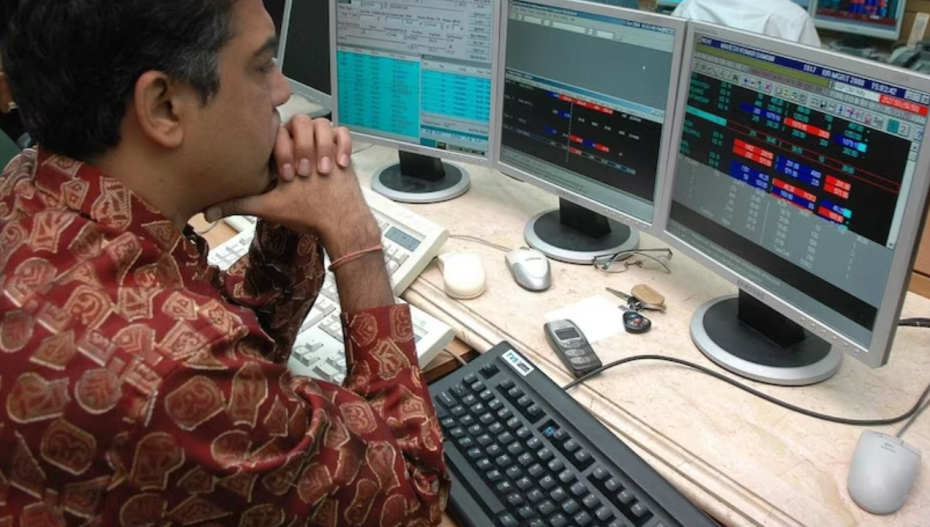The domestic stock markets faced major turmoil on Friday, with benchmark indices plummeting in early trade. The Sensex dropped nearly 1,000 points, while the Nifty fell over 1%, driven by weak global cues and persistent selling by foreign institutional investors.
The market capitalisation of BSE-listed firms suffered a loss of almost Rs 7 lakh crore as investor sentiment deteriorated.
One of the primary factors contributing to the decline was fresh tariff threats from former US President Donald Trump. Market experts noted that the absence of positive triggers further exacerbated the situation, leaving retail investors uncertain about the possibility of a recovery.
Dr VK Vijayakumar, Chief Investment Strategist at Geojit Financial Services, highlighted the impact of uncertainty on stock markets, particularly in light of Trump’s recent tariff announcements.
“The spate of tariff announcements by Trump has been impacting markets, and the latest announcement of an additional 10% tariff on China confirms the market’s view that he will use the initial months of his presidency to threaten countries with tariffs and then negotiate a settlement favourable to the US. How China responds to the latest round of tariffs remains to be seen,” he said.
He further added, “Even now, the markets have not discounted a full-blown trade war between the US and China. It is likely to be avoided. However, the uncertainty element has increased, as reflected in the sharp spike in the CBOE volatility index to 21.13.”
Despite the sharp decline, some analysts predict a potential recovery in March, backed by improved macroeconomic factors and reduced foreign investor selling.
Vijayakumar stated, “Since large-cap valuations are fair, and in some cases attractive, FIIs are unlikely to press selling as aggressively as in the last few months. Long-term investors can utilise the market weakness to gradually accumulate fairly-valued quality large caps and select stocks in the broader market, such as defence stocks.”
Prashanth Tapse, Senior VP (Research) at Mehta Equities Ltd, described the Nifty’s recent trends as uninspiring, comparing its movement to that of a tortoise.
He pointed out that negative catalysts were weighing on Dalal Street. “Weakened investor sentiment followed Trump’s announcement of a 25% tariff on EU imports and Nvidia’s mixed quarterly results. FIIs have sold over Rs 1.34 lakh crore in 2025,” he said.
Tapse also provided a technical outlook, stating, “Nifty’s strength depends on surpassing the 24,074 mark, with downside risks at 22,300 and 21,281. Traders are advised to sell Nifty and Bank Nifty, while Adani Enterprises, MCX, and SBI are bearish on intraday strength. Key stock to sell: Adani Enterprises, with targets at 2,025 and aggressive targets at 1,900.”
IT and auto stocks were among the worst-hit sectors, as reflected by sharp declines in the Nifty IT and Nifty Auto indices. Aditya Gaggar, Director at Progressive Shares, commented, “Among sectors, auto is expected to trade lower, with several stocks like Bajaj Auto and Hero Motocorp breaking their downside ranges. The IT sector remains bearish.”
He further stated, “The metals sector is likely to continue its negative bias, testing the lower end of its consolidation. The realty sector has breached its previous swing support, signalling a continuation of bearish momentum, with any rally likely to face selling pressure at higher levels.”
Despite the widespread decline, market experts advised investors to remain cautious but not panic. Some brokerage firms suggested that defence stocks could present buying opportunities due to recent corrections.
Analysts recommended focusing on quality blue-chip stocks that have become fairly valued during the correction, as a potential recovery could be on the horizon in the coming months.
Also Read: ‘Abhivyakti – The City Arts Project’ Announces Third Edition in Surat with Diverse Performances













